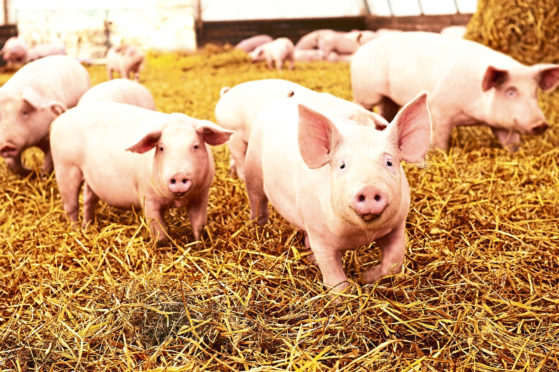Taking simple steps to improve biosecurity and welfare on pig farms can significantly reduce the amount of antimicrobials farmers have to administer, say scientists.
Researchers in Finland found poor air quality and water equipment problems could lead to farmers using up to 40% more antimicrobials than farms with high biosecurity.
Yet simple steps such as introducing better quality enrichment material could lead to a drastic reduction in antimicrobial use while improving animal welfare and cutting production costs in the process.
Speaking at the EAAP conference in Croatia, animal scientist Anna Styger of Finland’s Luke Institute said the study aimed to see if there was a link between biosecurity levels and pig health–and an indirect link to antibiotics use.
Using data collected between 2011 and 2013, the study analysed data from vets on antibiotic consumption, biosecurity and welfare conditions across almost 2,000 Finnish farms.
The researchers also examined meat inspection scores taken from the slaughterhouse, before using the data to model microbial consumption.
“Our results found that on farms with water equipment problems, there were elevated numbers of antimicrobial treatments due to lameness,” Dr Styger said.
“The number of treatments could be as much as 40% higher per batch compared to farms with excellent biosecurity
“That means farmers are making financial losses due to substantial medial expenses.”
